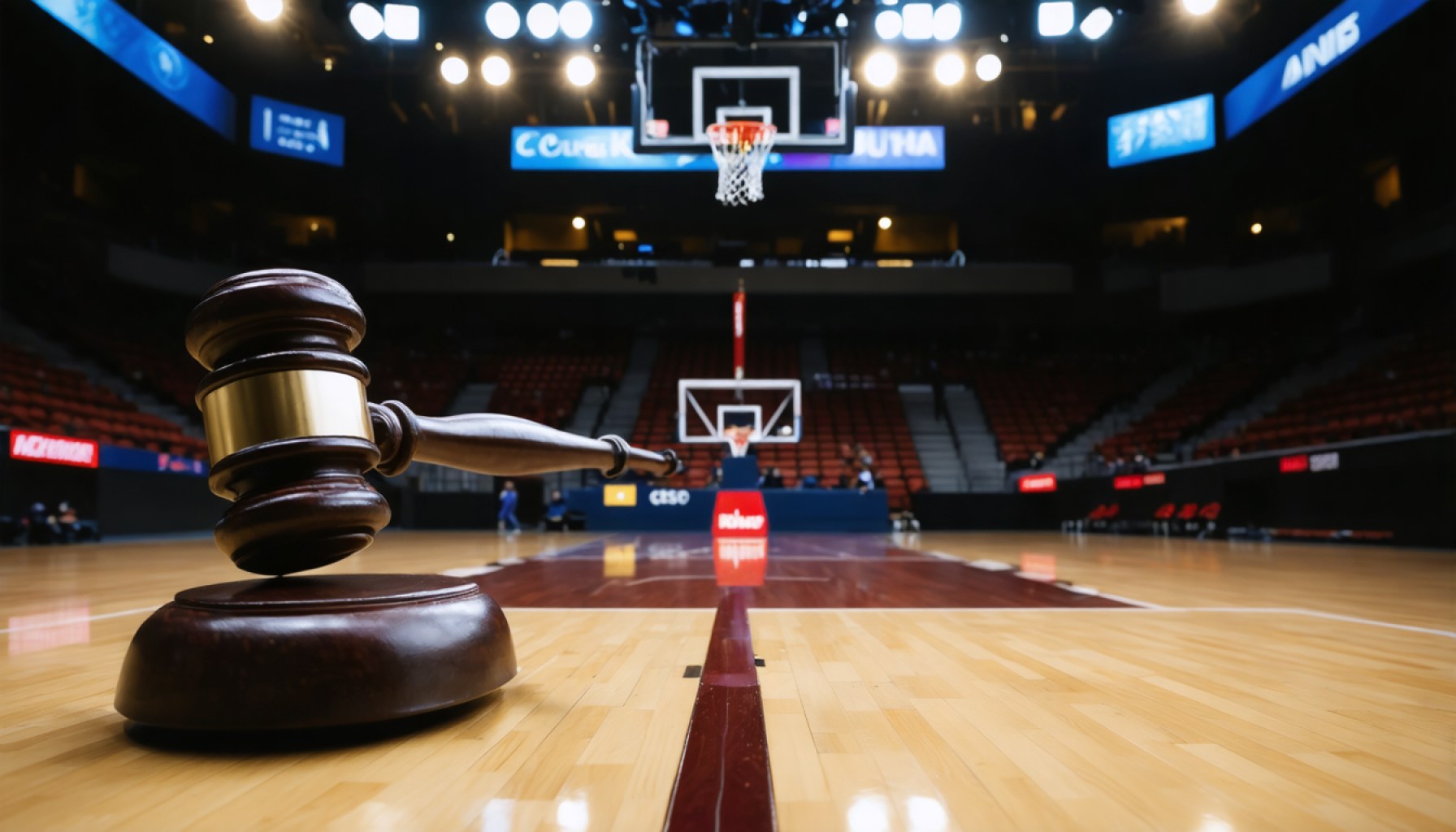- Recent legal ruling emphasized intellectual property rights, impacting AI and sports industries.
- U.S. Circuit Judge Stephanos Bibas ruled against Ross Intelligence for copyright infringement.
- The decision highlights the challenges AI faces in navigating legal boundaries across various fields.
- AI’s potential in sports is significant, influencing game strategies and enhancing fan experiences.
- The ruling warns that AI must respect copyright laws and avoid using content without fair use.
- As technology advances, industries must balance innovation with adherence to legal frameworks.
- Teams and developers should prioritize respecting intellectual property as both a legal and business strategy.
A recent legal decision involving AI and copyright infringement has sent shockwaves through the legal and sports worlds alike. In a landmark ruling, U.S. Circuit Judge Stephanos Bibas delivered a judgment against Ross Intelligence for illegally using Thomson Reuters’ copyrighted materials. This verdict, while primarily a victory for intellectual property rights, echoes far beyond law libraries, casting a spotlight on AI’s growing pains across industries, especially sports.
Imagine teams not just viewing game tapes but leveraging AI to exploit data-driven insights in groundbreaking ways. Non-generative AI in sports is already reshaping decision-making, enabling franchises to fine-tune strategies and enhance fan experiences through sophisticated analytics. Whether it’s crafting smarter data-driven broadcasts or designing next-generation gear, AI’s potential in sports is boundless.
However, Judge Bibas’ ruling underscores a critical warning: AI must navigate the intellectual high ground. By borrowing from existing content without fair use justification, Ross’ tool crossed a line, according to the court. The ruling paves the way for similar scrutiny in sports, where AI could tread dangerously close to copyright infringement or other legal pitfalls, such as the right of publicity and trade secret violations.
This cautionary tale accentuates the fine balance AI must strike between innovation and regulation. As athletes and leagues increasingly turn to technology, they face a rapidly changing landscape that demands both creative exploration and strict adherence to legal boundaries. Teams and developers need to tread carefully or risk the costly and contentious legal battles that loom on the horizon. The message is clear: in the quest for technological advancement, respecting intellectual property rights is not just legal prudence—it’s good business sense.
Unlocking AI’s Potential in Sports: Legal, Ethical, and Practical Insights
Introduction
The landmark ruling against Ross Intelligence, involving the unauthorized use of Thomson Reuters’ copyrighted materials, serves as a pivotal moment for artificial intelligence (AI) applications across various industries, including sports. As AI continues to reshape how organizations operate, understanding the legal implications and strategic applications is crucial for success.
How-To Steps & Life Hacks
1. Implementing AI in Sports:
– Data Collection: Gather comprehensive data on athletic performance, health metrics, and game statistics.
– Developing AI Models: Use machine learning to analyze patterns and forecast outcomes.
– Integrate with Existing Technologies: Ensure AI tools work seamlessly with current analytics platforms.
2. Ensuring Legal Compliance:
– Review Copyright Laws: Understand the specifics of what constitutes fair use in AI development.
– License Agreements: Secure proper licensing if leveraging third-party data.
– Regular Audits: Conduct audits to ensure ongoing compliance with legal frameworks.
Real-World Use Cases
– Performance Enhancement: AI is used to develop personalized training programs by predicting injury risks and improving athletes’ form.
– Fan Engagement: Teams leverage AI to enhance fan experiences through interactive apps and predictive game insights.
– Broadcasting Innovations: AI helps in crafting data-driven broadcasts, offering viewers enhanced insights and tailored experiences.
Market Forecasts & Industry Trends
According to a report by MarketsandMarkets, the sports technology market, including AI, is projected to grow from $8.9 billion in 2020 to $31.1 billion by 2024, showcasing a compound annual growth rate (CAGR) of 20.4%.
Controversies & Limitations
– Intellectual Property Risks: AI firms face potential litigation if they use proprietary data without permission.
– Ethical Concerns: The adoption of AI raises questions about privacy and data security for both teams and fans.
Pros & Cons Overview
– Pros: Improved decision-making, personalized fan experiences, and athlete safety.
– Cons: Legal risks, potential for misuse, data privacy issues.
Security & Sustainability
AI in sports must prioritize data privacy and cybersecurity while being mindful of sustainability:
– Strong Data Protection Protocols: Implement robust cybersecurity measures to protect sensitive data.
– Sustainable Practices: Ensure that AI solutions contribute to environmental goals through energy-efficient technologies.
Insights & Predictions
As AI technologies advance, their integration into sports will likely lead to:
– Enhanced Real-Time Analytics: More sophisticated in-game analysis will become standard.
– AI-Driven Talent Scouting: AI will play a pivotal role in identifying emerging talent through predictive analytics.
Actionable Recommendations
– Educate team members on intellectual property laws and AI applications.
– Foster partnerships with legal experts to navigate the complex landscape of AI and copyright.
– Innovate responsibly by cultivating a compliance-first culture.
Teams and developers should align their strategies with both innovation and regulation, ensuring a balanced approach to AI.
Conclusion
The evolving role of AI in sports promises transformative impacts. However, staying vigilant about legal and ethical considerations will be vital for sustainable success. For more insights, explore resources from Sports Illustrated and Forbes.
